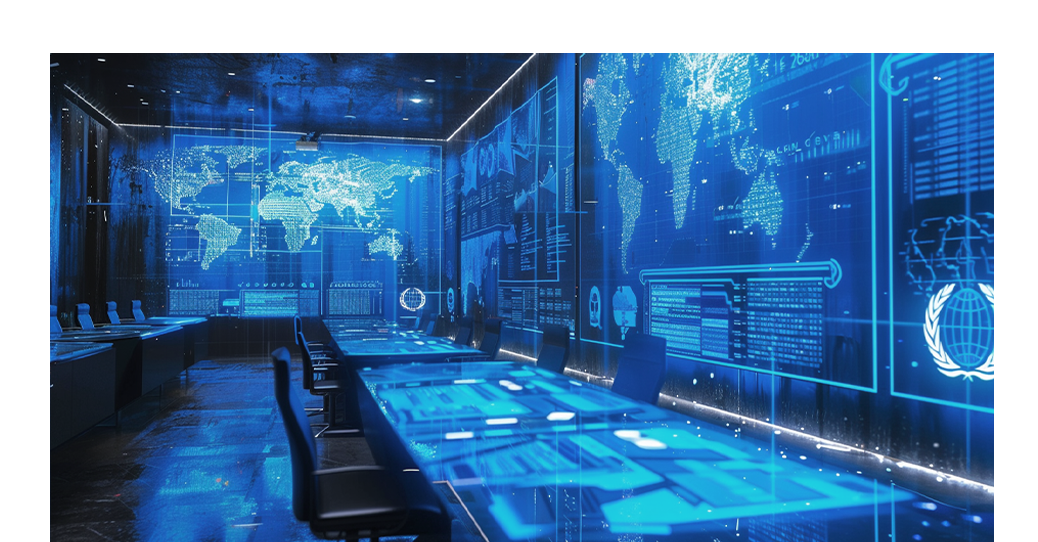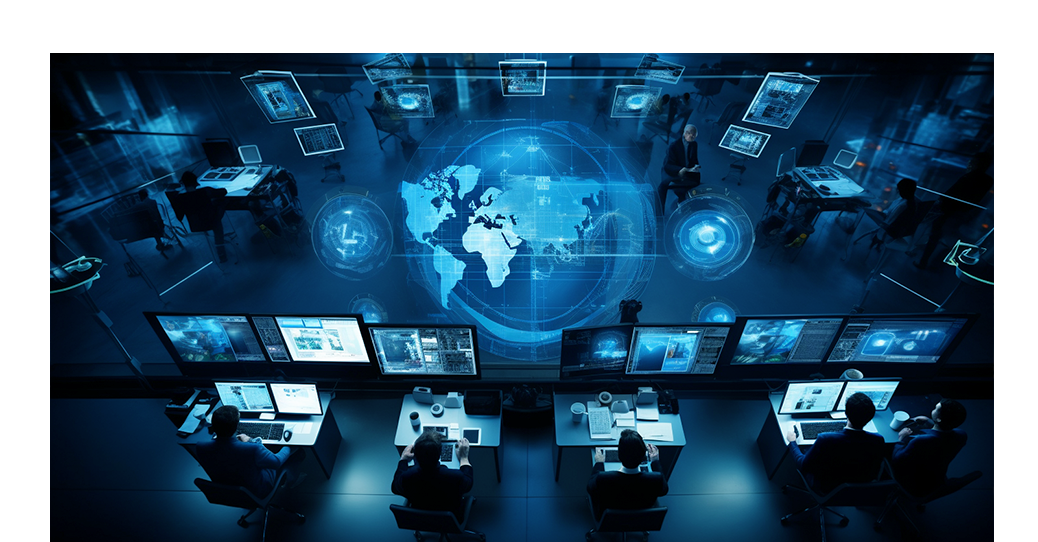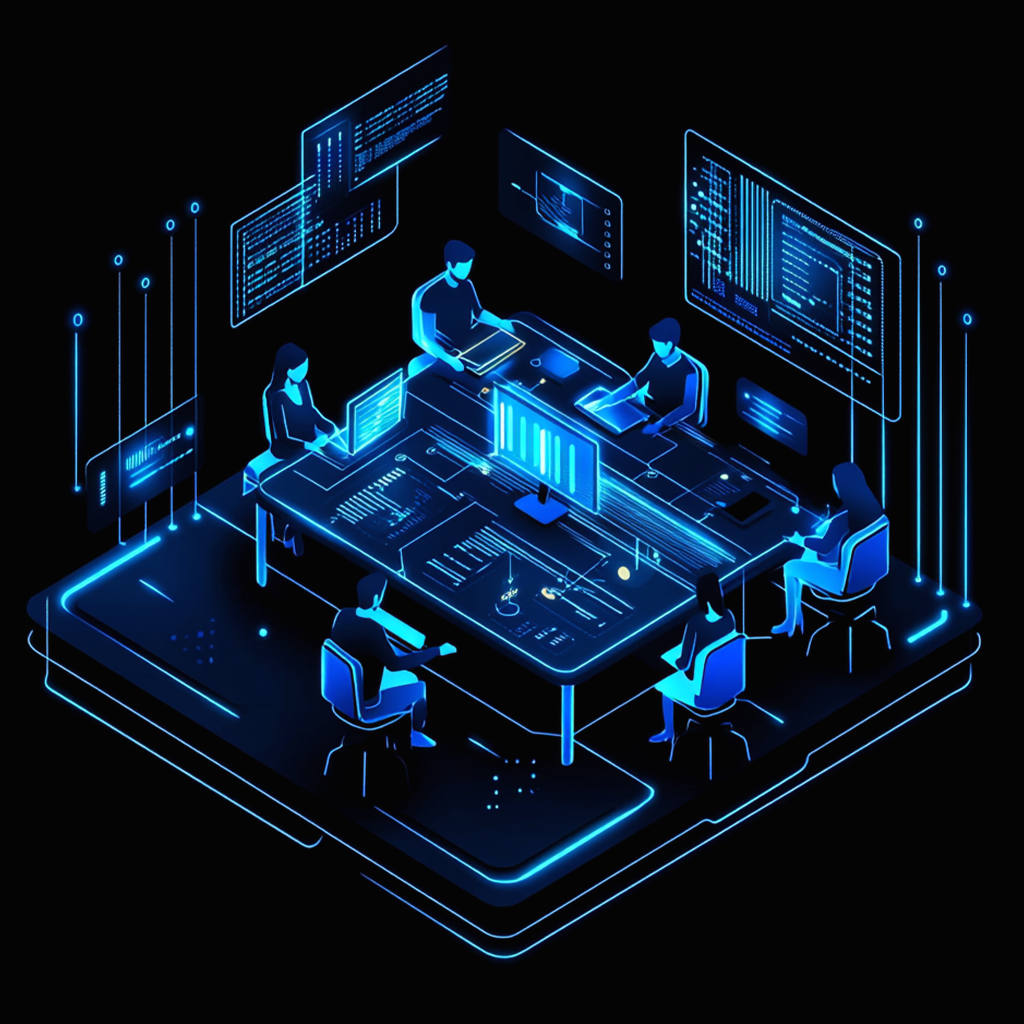

Tailored strategic support
Erium provides its clients with a comprehensive and tailored approach to cybersecurity. With a team of expert consultants, the Advisory Division addresses critical areas such as cyber defense strategy, SOC/CSIRT operations management, CERT service development, and crisis management.
The experts also advise clients on selecting the most suitable defense technologies (NDR, XDR, EDR, SOAR, SIEM) and assist them in choosing strategic MSSP partners.
The Advisory Division supports you with your key challenges :

The Strategic Role of Crisis Management
The speed and effectiveness with which an organization manages a cyber crisis can determine its long-term impact. Effective crisis management helps to minimize financial losses, protect the company’s reputation, and draw lessons from incidents to enhance future defense strategies.
A critical aspect of this preparation is the regular execution of real-world exercises simulating cyber crises. These simulations allow the team to test its procedures, refine responses, and be fully prepared in the event of an actual crisis, ensuring a coordinated and effective response.

The Strategic Role of Awareness
As the first line of defense against cyberattacks, a well-trained and aware team is a critical asset in mitigating human risks, often the most vulnerable link in a defense strategy.
To strengthen this posture, employees must train in real-world conditions through cyberattack simulations and immersive scenarios. It is also essential to foster a genuine cybersecurity culture within the organization by organizing dynamic and interactive events, such as challenges or workshops, to maintain a high level of vigilance and engagement in the face of threats.

The Strategic Role of Cyber Defense
Developing a robust cyber defense strategy enables an organization to anticipate threats, stay updated on evolving risks, minimize the potential impact of an attack, and strengthen its ability to respond quickly in the event of a security breach. It is a cornerstone for ensuring business continuity.

The Strategic Role of Building CERT Services
Establishing a CERT is essential for centralizing the skills and expertise needed to manage complex incidents.
A well-structured CERT equips an organization with a proactive and reactive force, capable of effectively managing crises, providing long-term recommendations, and ensuring continuous awareness of emerging threats.
The Strategic Role of Defense Technologies
The selection of these technologies is critical for building a robust defense ecosystem.
An effective combination of these tools enables broader monitoring and faster response to threats, while automating critical processes to reduce response times and optimize resources. Poor technology choices can leave gaps or make the system more vulnerable. Erium leverages a wide network of partners to offer the most innovative and suitable solutions.
Why train for crisis management ?
Improve responsiveness
Crisis exercises allow teams to train with realistic scenarios, enhancing their ability to respond quickly and effectively in the event of a real crisis. They strengthen coordination among various stakeholders (IT teams, executives, communications, etc.) to minimize errors and maximize the efficiency of responses.
Identify weaknesses
Real-world simulations often uncover undetected vulnerabilities in processes, tools, or employee behavior. This allows for testing and optimizing crisis management plans, while making improvements to strengthen systems and make the organization more resilient to threats.
Manage emotions during the crisis
Having already practiced real-world scenarios, teams will be calmer and better prepared to act in the event of a real crisis. This reduces stress and improvisation, promotes informed and effective decision-making, and thereby minimizes negative impacts on both employees and the organization.
Stay up-to-date with the latest in cybersecurity news.
Latest technical indicators, press articles, white papers, cybersecurity monitoring, webinars, market trends, expert insights, solutions, glossary.







